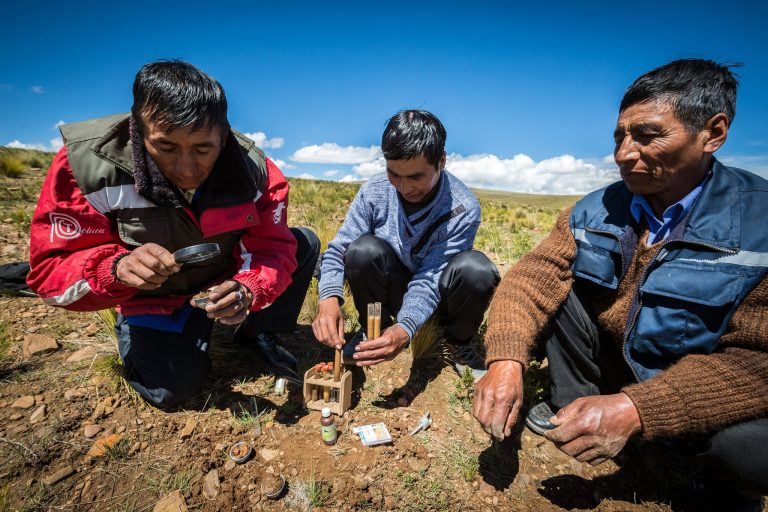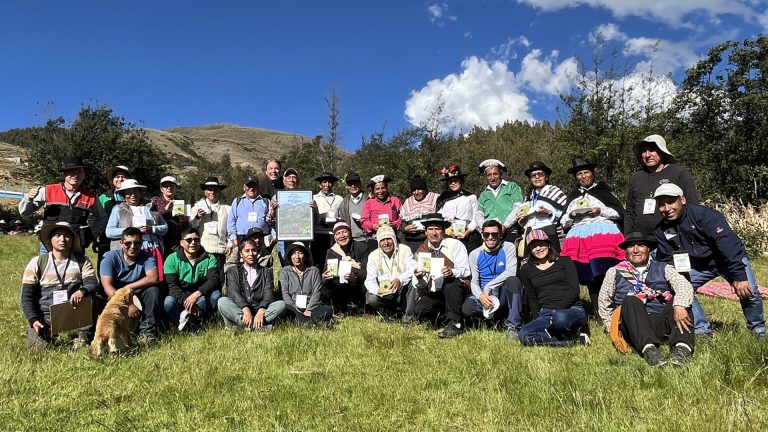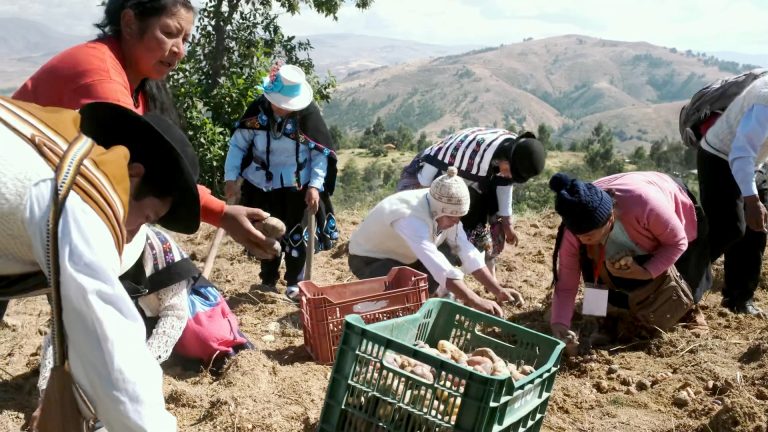McKnight’s Fourth Quarter Grantmaking Supports Food Solutions for People and Planet
Indigenous peoples and farmers across the world have long recognized the interconnectedness between food systems, health, and our planet. When local farmers have a say in the health of their food, water, and resources, and share their knowledge, they are a force for global change. They create healthy, sustainable food systems that feed families, mitigate climate change, and improve the livelihoods and resilience of entire communities.
In fourth quarter 2021, the McKnight Foundation awarded 200 grants in the amount of $28,790,000. (See our የውሂብ ጎታዎችን ይሰጣል for a full list of approved grants.) Of that sum, nearly $1.3 million went to grantees in the International program. Among last quarter’s grantees, the program awarded $300,000 for 36 months to SWISSAID, the Swiss Foundation for Development Cooperation, as it pilots a locally led farmer research network in Ecuador. On top of the $1.3 million, an additional $1.5 million in grant amendment dollars went to local and national organizations in Africa and South America.
"Our food systems are intricately linked to climate change and equity. To ensure a future where people and planet can thrive, we must work together to change the way the world produces, consumes, and thinks about food." – Tonya Allen, McKnight Foundation
The Foundation’s International program supports farmer research networks to promote a more equitable system that gives smallholder farmers and farm communities a voice in our collective future. Since 2013, the Foundation has supported 30 farmer research networks ranging in size from 15 to more than 2,000 farmers.
“Our food systems are intricately linked to climate change and equity. To ensure a future where people and planet can thrive, we must work together to change the way the world produces, consumes, and thinks about food,” said Tonya Allen, McKnight Foundation president. “McKnight is a proud long time supporter of research that puts smallholder farmers at the center of reimagining food systems and ecological solutions for all.”
The SWISSAID grant is awarded through McKnight’s የትብብር ምርምር ምርምር ፕሮግራም (CCRP), which works to ensure a world where all have access to nutritious food that is sustainably produced by local people. CCRP supports agroecological and farmer-centered research in 10 countries through three communities of practice in Africa and South America.
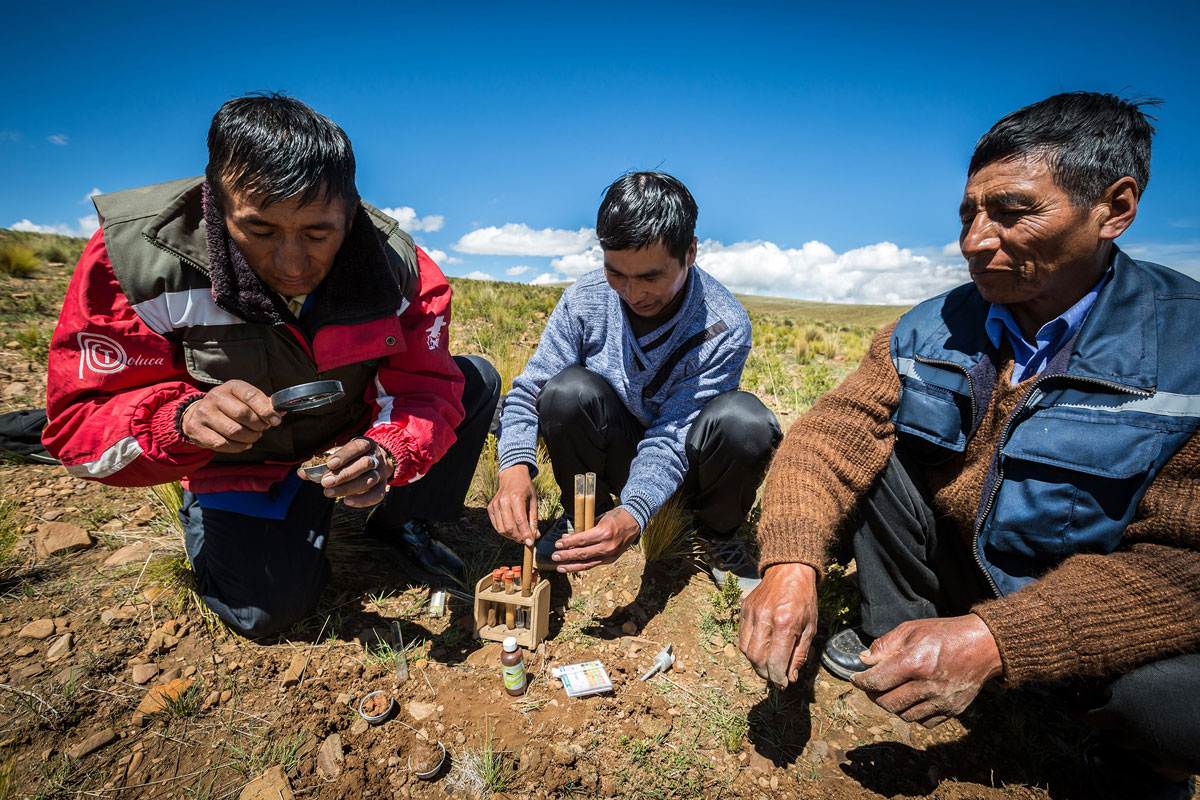
Collaborative Research Empowers Farmers to Find Food Solutions
With growing global awareness that industrial food systems contribute to both human and planetary crises, the McKnight Foundation’s International program has focused its efforts on supporting agroecological research and practice. We need local and diverse forms of knowledge to more fully contribute to food and climate solutions.
In addition to promoting greater equity, farmer research networks help increase sustainable agroecology practices. These networks also bring together farmers, research institutions, development organizations, and others to improve agriculture and food systems for all. In a co-created process of sharing and building knowledge, these networks seek ecological solutions tailored to specific regions, considering local farmers’ needs, priorities, and wisdom—including those of women and other historically marginalized groups.
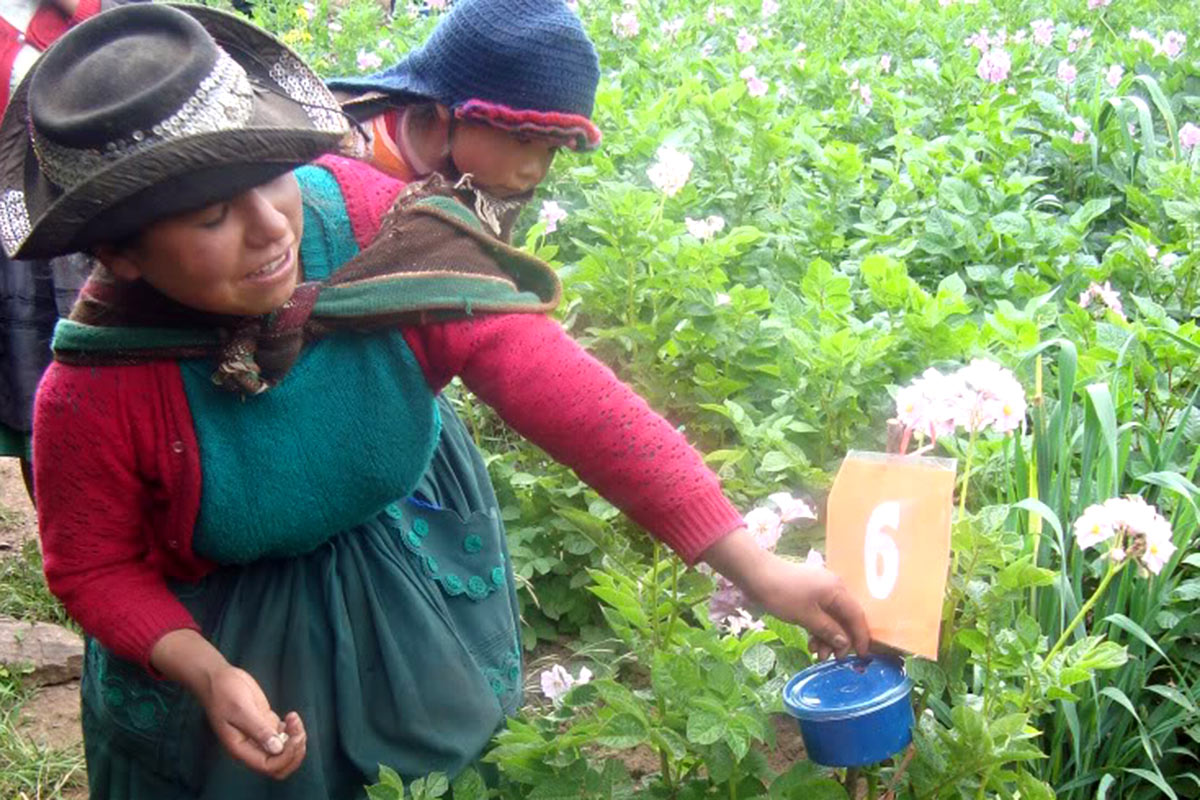
In Ecuador, smallholder farm families in the central highlands face increasingly harsh conditions as the climate crisis intensifies. In response, Andean farmers have found innovative and creative approaches to meet their region’s basic food needs. In partnership with organizations like SWISSAID, these farmers are advancing sustainable production practices, improving drinking water and irrigation systems, conserving the high-Andean grasslands, and bringing renewed hope to their region.
SWISSAID is a global organization that works with nine partner countries to transform food systems through agroecological principles. In Ecuador, for example, SWISSAID works mainly with low-income farmers and Indigenous populations whose main income source is agriculture. With McKnight’s funding, the organization will deepen farmer research networks by supporting a pilot project to expand agroecology field schools in four provinces in central Ecuador. Lead farmers who have extensive experience with agroecological transitions will train in policy, facilitation, and pedagogy skills—strengthening farmers’ ability to use their voice and advocate for their rights before local and state governments.
“As climate change wreaks havoc on the world’s agricultural and food systems, we must listen to the insights and practices of the people who are planting seeds and tilling the soil in increasingly challenging conditions,” said Jane Maland Cady, McKnight’s International program director. “Farmer research networks show us that agriculture, food systems, equity, and our planet are intricately connected. We must work together to reduce poverty, improve access to food, care for the environment, and support healthy and equitable communities, all while mitigating climate change to preserve our planet.”
To learn more about farmer research networks, read Jane Maland Cady’s recent article in የምግብ ማጠራቀሚያ and this academic article. In addition, this farmer research network report shares learnings from an October 2021 international gathering.
የሰራተኞች ዝመናዎች
This quarter, we welcomed Beyene Gessesse as program officer for the International team. He has worked extensively with farmers, researchers, and development funders to implement successful food security programs. We also welcomed Robert Harter as programs assistant supporting cross-program integration. Additionally, we congratulated Lue Vang on his promotion to finance manager. And we said a warm goodbye to Arleta Little, Arts & Culture program officer and director of the Artist Fellowships program, who left her role to become executive director of የግራ ሥነ ጽሑፍ ማዕከል.
Finally, Ben Hecht, a leading urbanist and former CEO of Living Cities, joined the Foundation as visiting senior advisor. He will focus on drawing national capital to support community-led revitalization efforts that center climate-resilient and equitable practices in the Twin Cities.
